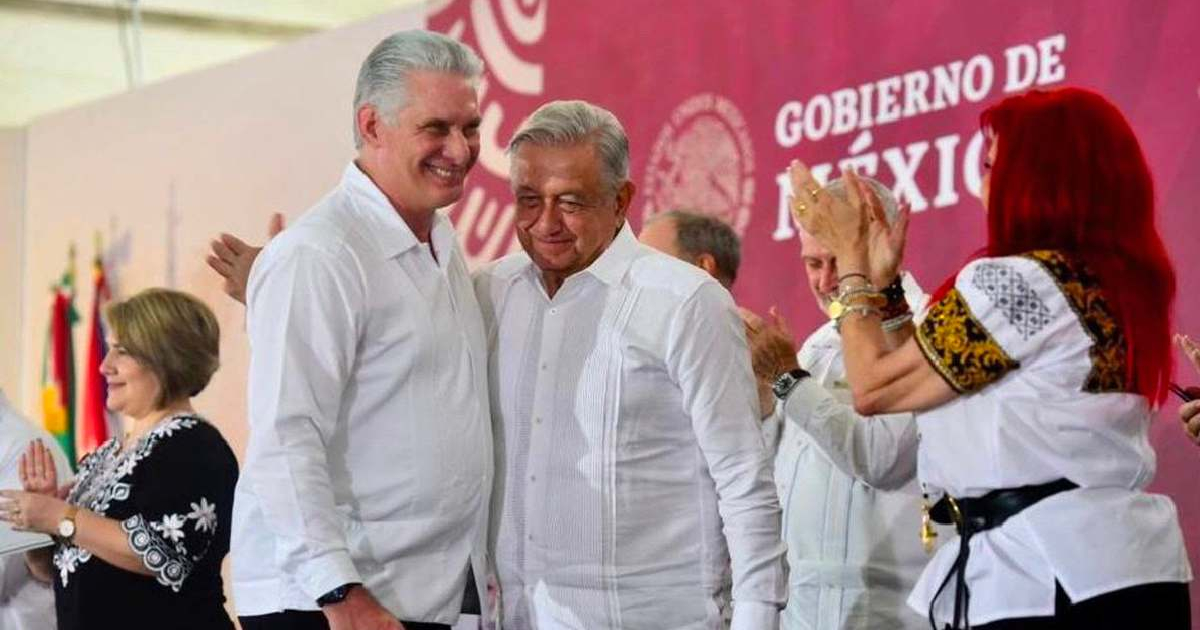
The Export-Import Bank of the United States (EXIM) canceled in August a loan of approximately 800 million dollars to the state company Petróleos Mexicanos (Pemex), after discovering that the government of Andrés Manuel López Obrador had given fuel to the Cuban regime.
A financial source in Washington revealed to the newspaper Millennium that EXIM, formerly known as Eximbank, had already completed the process to grant credit to Pemex, after it met the last requirement of a social and environmental impact study.
However, he decided to cancel the credit – which was kept confidential – after the donations of more than one million barrels of crude oil to Cuba in June and July, which the Mexican government hid, presumably to avoid sanctions.
EXIM, the official credit agency that promotes exports and investment by the American private sector abroad, kept the cancellation of the credit secret at the request of Pemex to avoid a financial and diplomatic scandal. The bank sanction is specifically directed at Pemex, not the Mexican government as a whole.
For this reason, Eximbank will continue to support US investors in operations in Mexico, except in the oil sector, the source clarified.
Pemex, which is already facing financial difficulties, high levels of debt, inefficiency and corruption problems, has attempted to soften relations with the US through diplomatic channels through recent announcements that it will try to collect crude oil from the island.
But the company now finds itself under restrictions similar to those applied by EXIM to countries in its "Country Limitation Schedule, or CLS", such as Bolivia, Cuba, Haiti, Nicaragua and Venezuela.
The Eximbank document on this matter reports that, in accordance with a prior agreement between both parties, Pemex withdrew its credit application on August 23, 2023, without providing an explanation. This credit was related to the development of oil and gas fields on the east coast of Mexico, with reference number AP089444XX.
The decision to cancel the credit to Pemex was approved by the Board of Directors, with the non-voting participation of the trade representative Katherine Tai and the Secretary of Commerce, Gina Raimondo, both authorities related to the Agreement between Mexico, the United States and Canada (T-MEC).
A month after the suspension of the credit, Mexico's Secretary of Foreign Affairs, Alicia Bárcena Ibarra, tried to soften the impact by sending a conciliatory message to Washington.
In an interview with Bloomberg's Eric Martin, he noted that Pemex was considering ways to charge Cuba for oil donated as humanitarian aid, taking into account Pemex's fiscal problems, but stated that any such move should avoid violating US sanctions. .
At the end of June, Mexican journalist Gerardo Enríquez Aburto revealed that Mexico had diverted oil to Cuba and had not declared it in its records. On that occasion it involved 350 thousand barrels of crude oil donated to Havana, without complying with the corresponding legal regulations.
Pemex unloaded the fuel on the Delsa ship, flying the Cuban flag and docking at pier 6 of the Pajaritos Logistics Terminal, located in Coatzacoalcos; but the shipment was invoiced to the company "Gasolinas del Bienestar S.A. de C.V.", based at Marina Nacional 329, Pemex Central Building, in Mexico City. However, surprisingly, it was found that the final destination of this crude oil would be Havana.
The shipping order, provided by the Mexican journalist, was issued and signed by Alfredo Vargas Luna, Hydrocarbon Marketing Manager (GCH), who received instructions from his superior, Carlos Pérez Téllez, Commercial Manager of the Marketing and Operations Subdirectorate, belonging to Pemex Exploration and Production (PEP), under the supervision of engineer Ángel Cid, manager of the corresponding subsidiary.
The oil tanker should have left this Friday, around 1:00 p.m. (local time), bound for Cuba, but there was no updated information in the digital records.
This detour highlighted the practices and transparency in the operations pushed by the government of Andrés Manuel López Obrador, a partner in Havana and one of the men who has supported the regime led by Miguel Díaz-Canel, especially since the social outbreak of September 11. July 2021.
In October, it emerged that Mexico has sent oil worth approximately 200 million dollars this year, according to calculations by the Energy Institute of the University of Texas, in the United States.
Data obtained by the Spanish agency EFE indicate that Mexico, through Pemex, has positioned itself this year as one of the largest suppliers of crude oil to Cuba, which depends almost entirely on imports from its allies Venezuela and Russia to maintain the energy sector in operation.
During the United Nations conference, the Mexican Foreign Minister made a surprising announcement. He said that his country plans to collect donated fuel To Cuba. Now the questions about this statement are cleared up: the official tried to ease tensions with the United States, her main trading partner.
This Friday, Cuban-American congresswoman María Elvira Salazar sent a letter of gratitude to EXIM for denying $800 million in loans to Pemex to send free oil to the Cuban regime.
"Taxpayer money should not be loaned to foreign companies that will finance the communist regime in Havana," he stated.
What do you think?
SEE COMMENTS (4)Filed in: